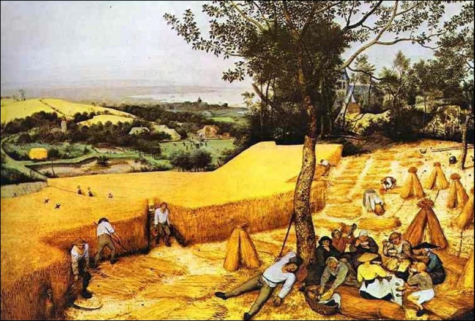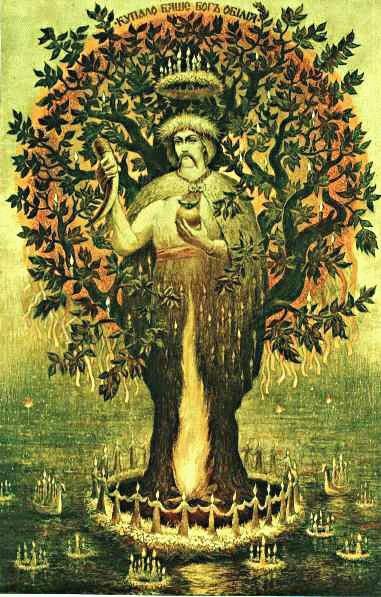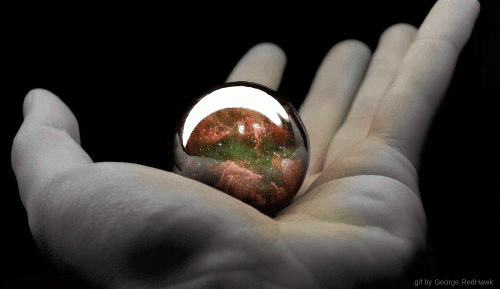Summer
When Lammastide rolls around, the fields are full and fertile. Crops are abundant, and the late summer harvest is ripe for the picking. This is the time when the first grains are threshed, apples are plump in the trees, and gardens are overflowing with summer bounty. In nearly every ancient culture, this was a time of celebration of the agricultural significance of the season. Because of this, it was also a time when many gods and goddesses were honored. These are some of the many deities who are connected with this earliest harvest holiday.
Adonis (Assyrian): Adonis is a complicated god who touched many cultures. Although he’s often portrayed as Greek, his origins are in early Assyrian religion. Adonis was a god of the dying summer vegetation. In many stories, he dies and is later reborn, much like Attis and Tammuz.
Attis (Phrygean): This lover of Cybele went mad and castrated himself, but still managed to get turned into a pine tree at the moment of his death. In some stories, Attis was in love with a Naiad, and jealous Cybele killed a tree (and subsequently the Naiad who dwelled within it), causing Attis to castrate himself in despair. Regardless, his stories often deal with the theme of rebirth and regeneration.
Ceres (Roman): Ever wonder why crunched-up grain is called cereal? It’s named for Ceres, the Roman goddess of the harvest and grain. Not only that, she was the one who taught lowly mankind how to preserve and prepare corn and grain once it was ready for threshing. In many areas, she was a mother-type goddess who was responsible for agricultural fertility.
Dagon (Semitic): Worshiped by an early Semitic tribe called the Amorites, Dagon was a god of fertility and agriculture. He’s also mentioned as a father-deity type in early Sumerian texts and sometimes appears as a fish god. Dagon is credited with giving the Amorites the knowledge to build the plough.
Demeter (Greek): The Greek equivalent of Ceres, Demeter is often linked to the changing of the seasons. She is often connected to the image of the Dark Mother in late fall and early winter. When her daughter Persephone was abducted by Hades, Demeter’s grief caused the earth to die for six months, until Persephone’s return.
Lugh (Celtic): Lugh was known as a god of both skill and the distribution of talent. He is sometimes associated with midsummer because of his role as a harvest god, and during the summer solstice the crops are flourishing, waiting to be plucked from the ground at Lughnasadh.
Mercury (Roman): Fleet of foot, Mercury was a messenger of the gods. In particular, he was a god of commerce and is associated with the grain trade. In late summer and early fall, he ran from place to place to let everyone know it was time to bring in the harvest. In Gaul, he was considered a god not only of agricultural abundance but also of commercial success.
Neper (Egyptian): This androgynous grain deity became popular in Egypt during times of starvation. He later was seen as an aspect of Osiris, and part of the cycle of life, death and rebirth.
Parvati (Hindu): Parvati was a consort of the god Shiva, and although she does not appear in Vedic literature, she is celebrated today as a goddess of the harvest and protector of women in the annual Gauri Festival.
Pomona (Roman): This apple goddess is the keeper of orchards and fruit trees. Unlike many other agricultural deities, Pomona is not associated with the harvest itself, but with the flourishing of fruit trees. She is usually portrayed bearing a cornucopia or a tray of blossoming fruit.
Tammuz (Sumerian): This Sumerian god of vegetation and crops is often associated with the cycle of life, death, and rebirth.
In his book Deutsche Mythologie (1835), Jacob Grimm noted that Russians used the word kupala to describe the bonfires they lit at the summer solstice, and recorded that some people explained the word as the name Kupulo, a harvest god.
Gods such as Koleda and Kupala were constructed from misinterpreted names of popular Slavic folk festivals; Koledo was the Slavic name for Christmas processions of carol singers, whilst Kupala comes from Ivan Kupala (literally: John the Baptist), whose festivity day is celebrated at the summer solstice in many Slavic countries.
Although the word kupala (or kupalo) is usually explained as “bather” (from kupat(i) ‘to bathe’), some scholars claim that it is not an epithet of John the Baptist, but a name of a pre-Christian Slavic deity, derived from some other root.
According to Vyacheslav Ivanov and Vladimir Toporov, the name Kupala is derived from the same Indo-European root as the name of Cupid, Roman god of love, which means ‘passion’ or ‘desire’. The cult of Kupala, the god of fertility and sexuality, was presumably replaced by worship of John the Baptist.
According to some texts on Slavic mythology, Kapalo or Kupalo is the god of the summer solstice. Kupalo is the mature, the aging Yarilo. Yarilo comes into human world (Yav) every spring to bring new life, fertility and rich harvest. In the summer he turns into Kupalo. His life on the world gradually moves to its end.
He has accomplished his mission in our world and sets off for the Underworld, so he can return again next summer.
This is why the Kupalo festival (summer solstice) is actually bidding farewell to the old-aged Yarilo – a preparation for his later ritual burial. During the celebrations, for the last time people express their joy of god Yarilo’s visit in their world, the happiness he had brought; they sing incantations and prayers to the fertile god to come again next year.
The year is half-way through, last fruitful months are elapsing and then winter will come – the time of death goddess Mora, time of darkness, cold, misery, illness and death.
Sources: Various




